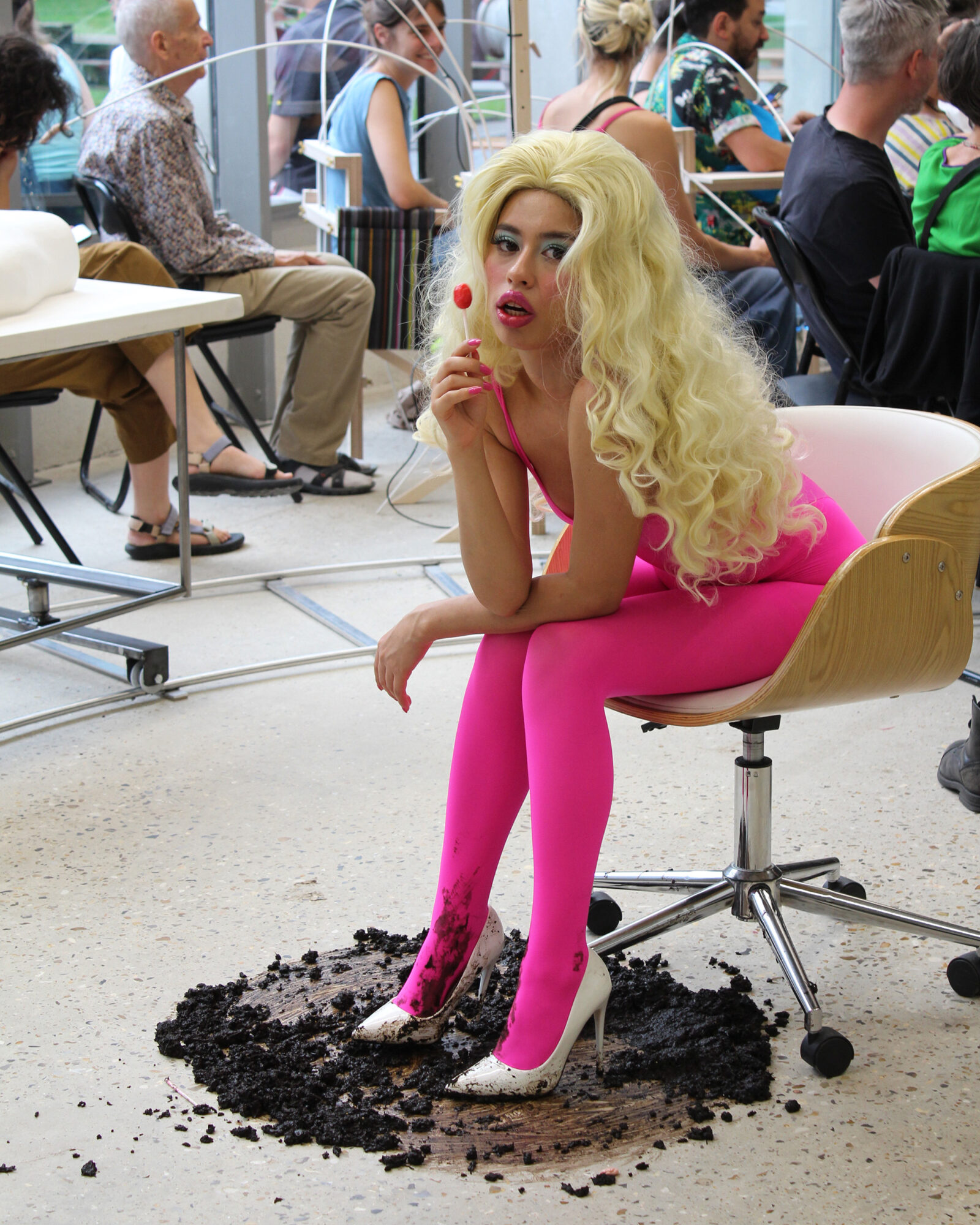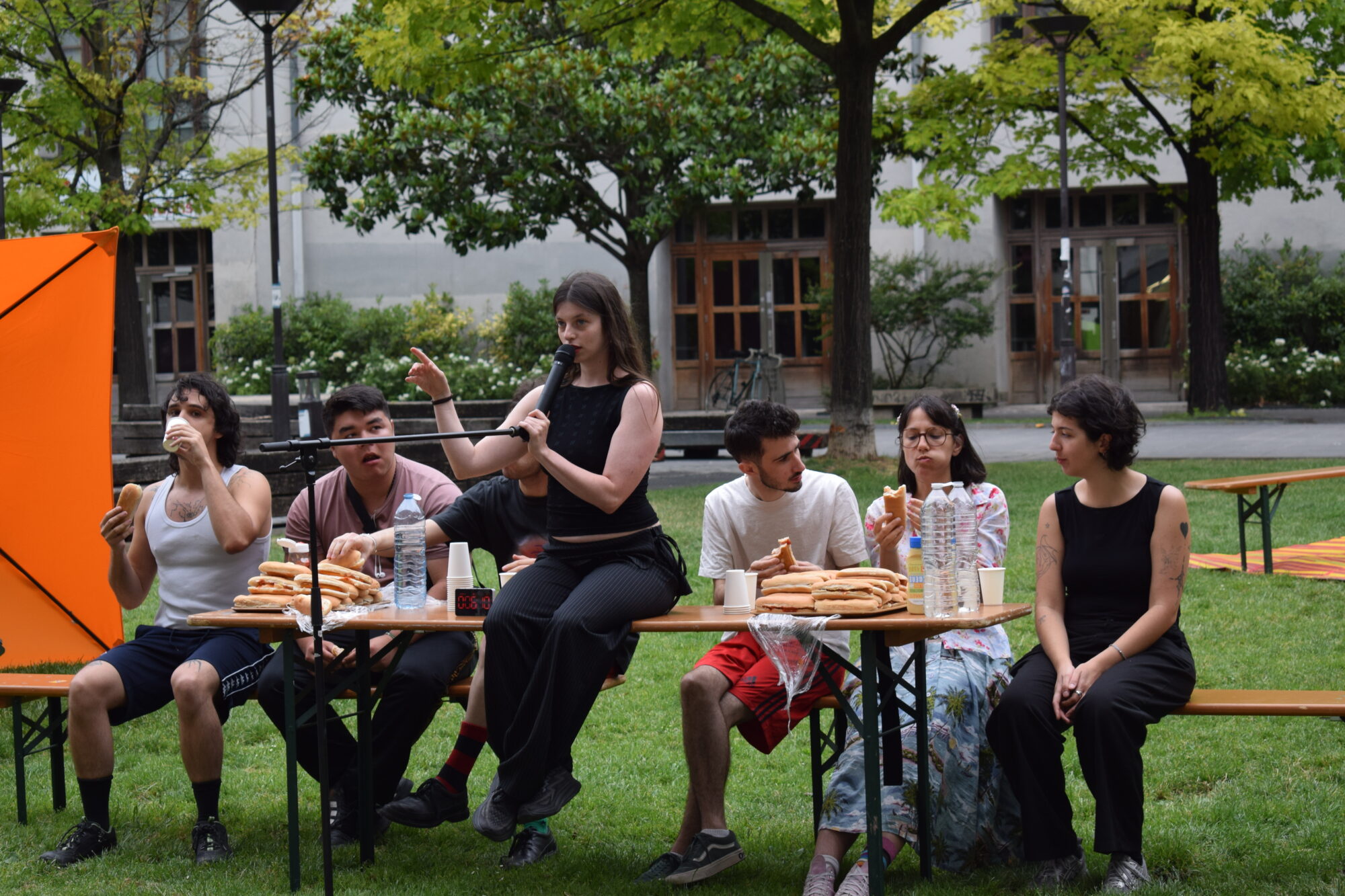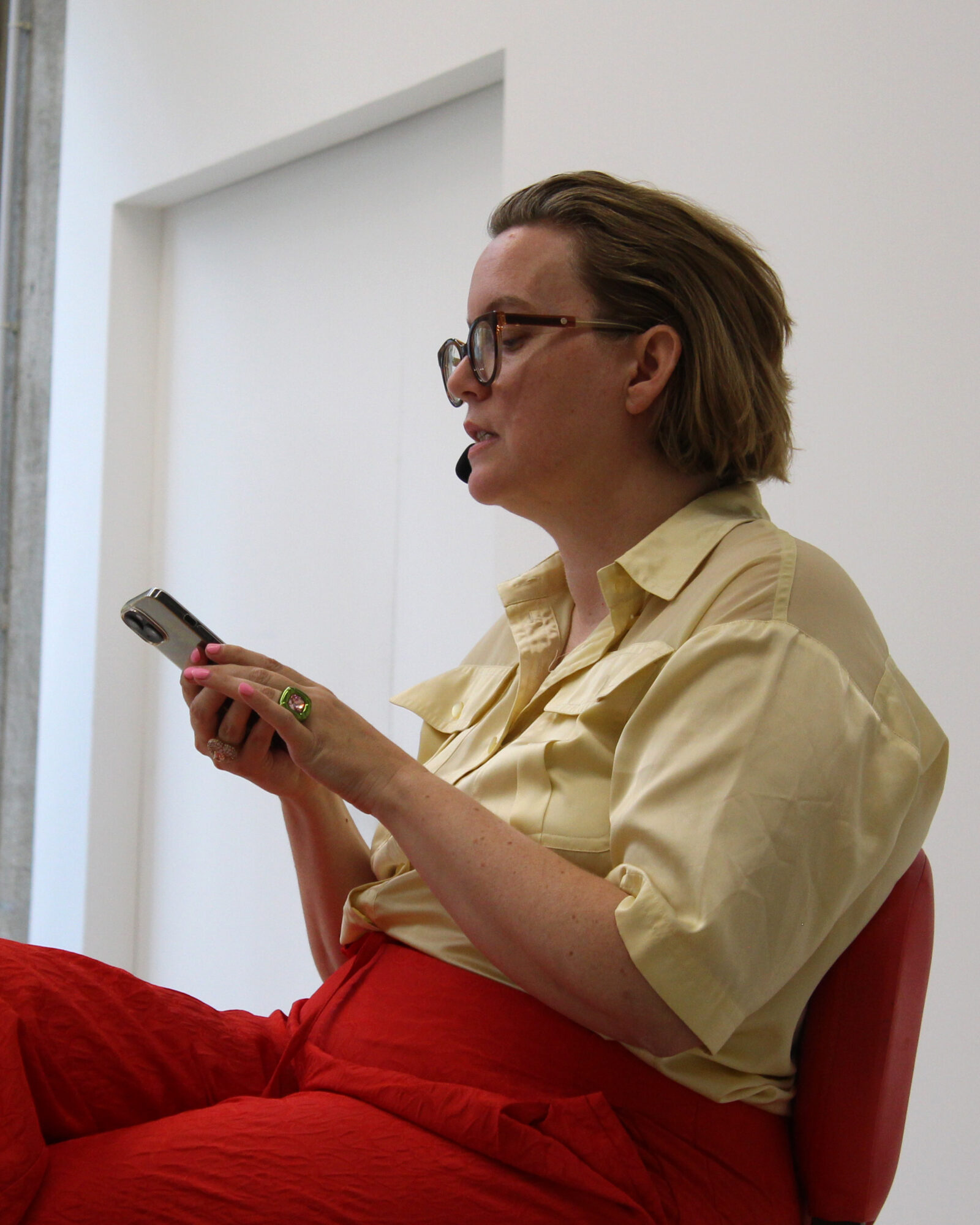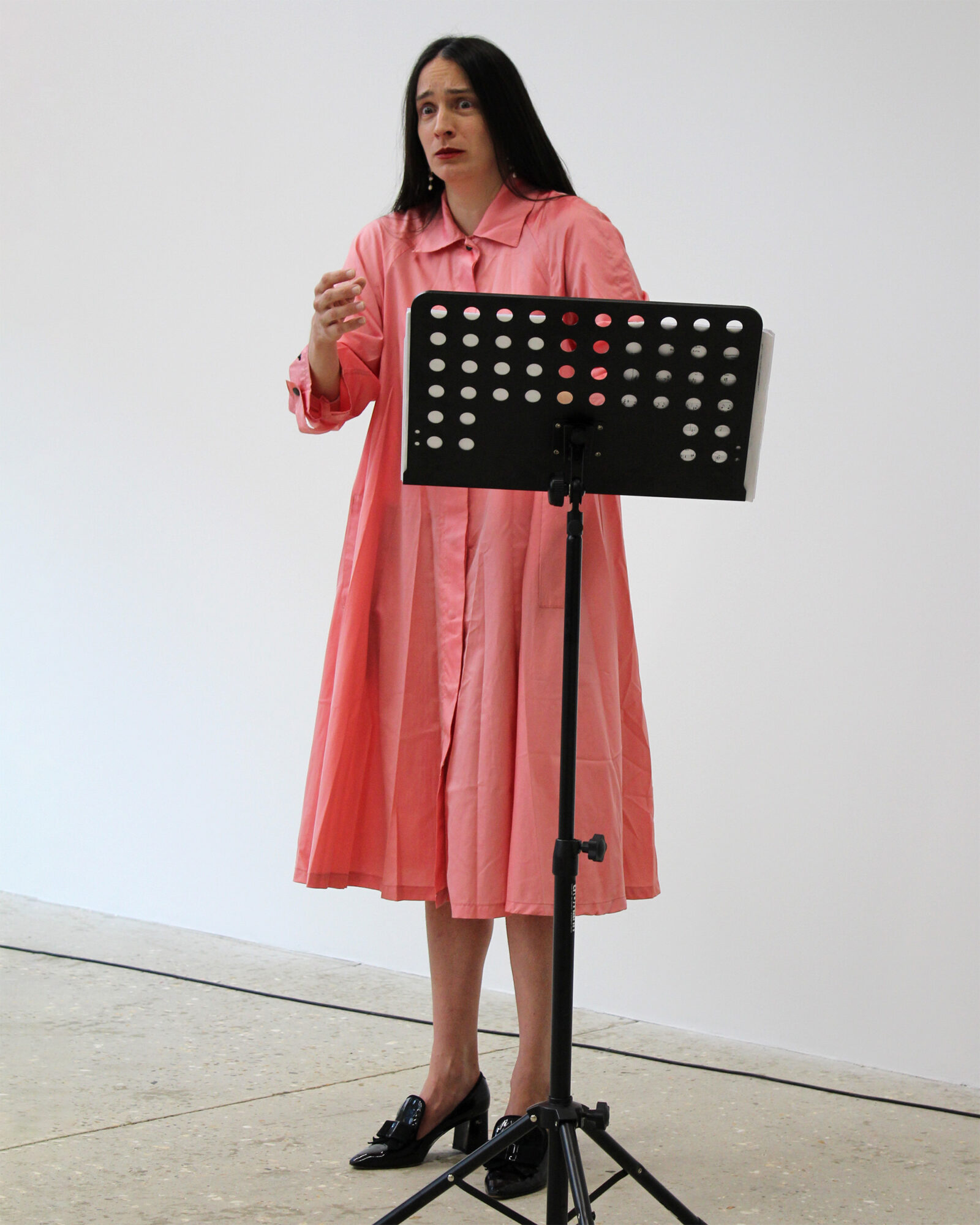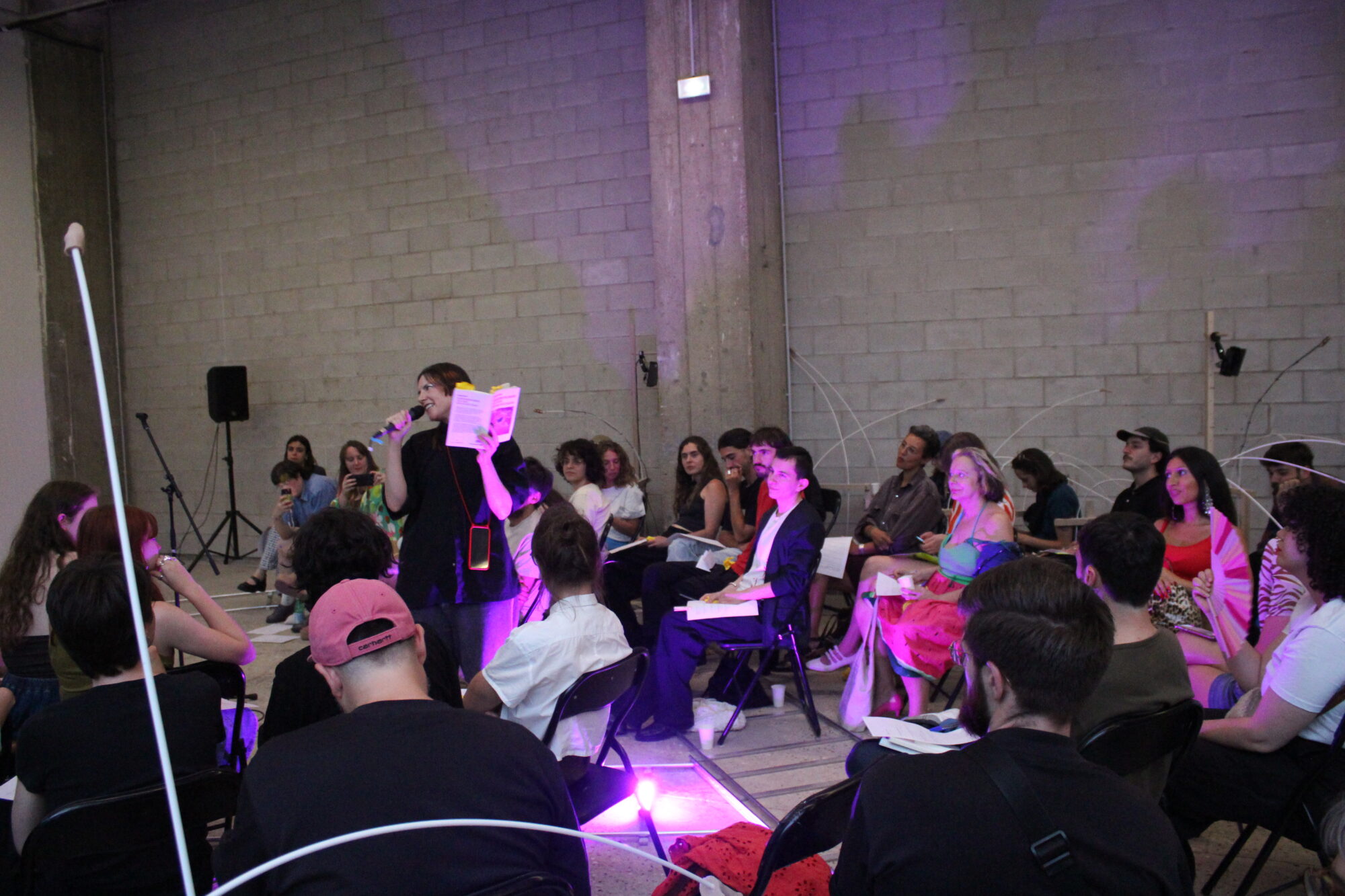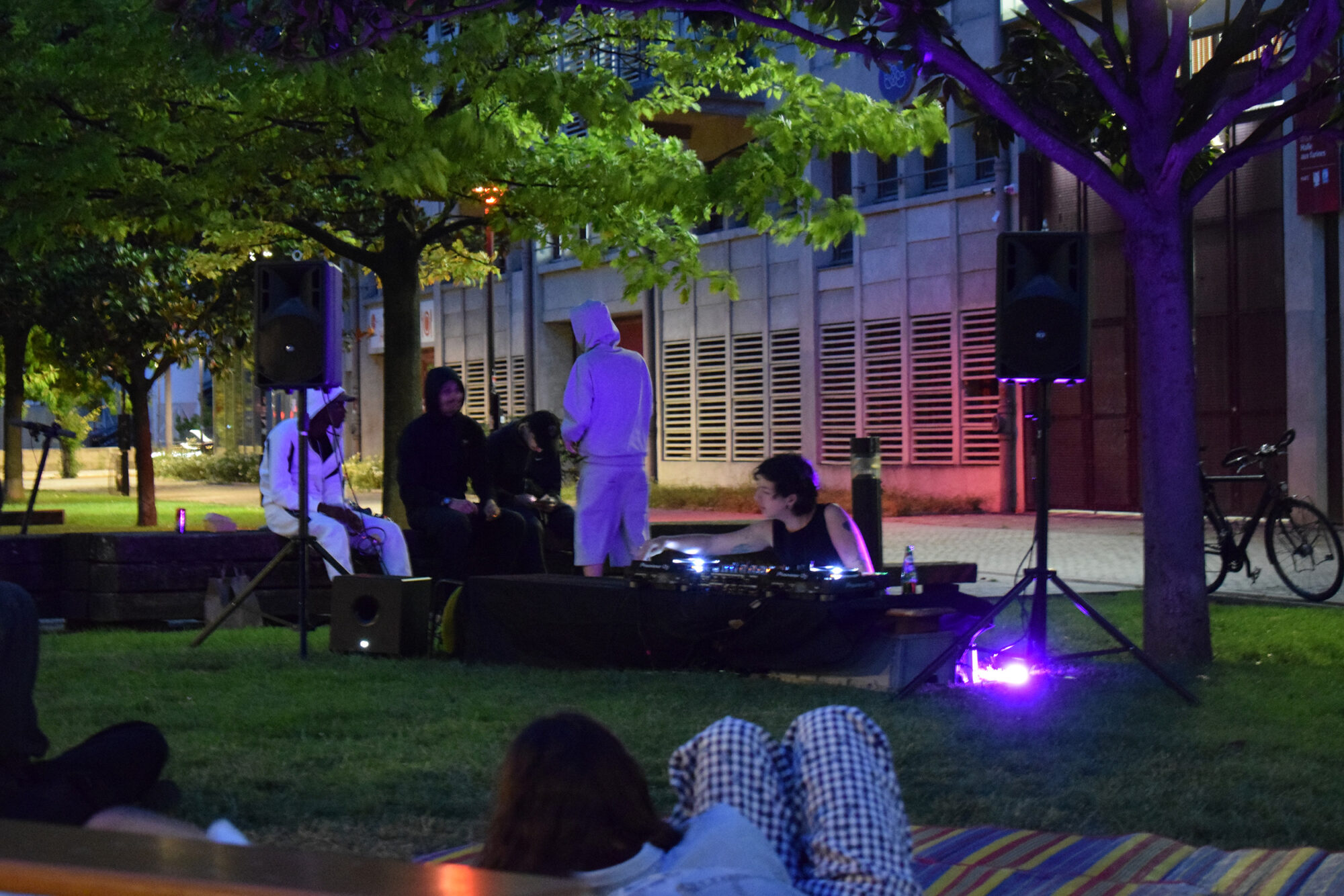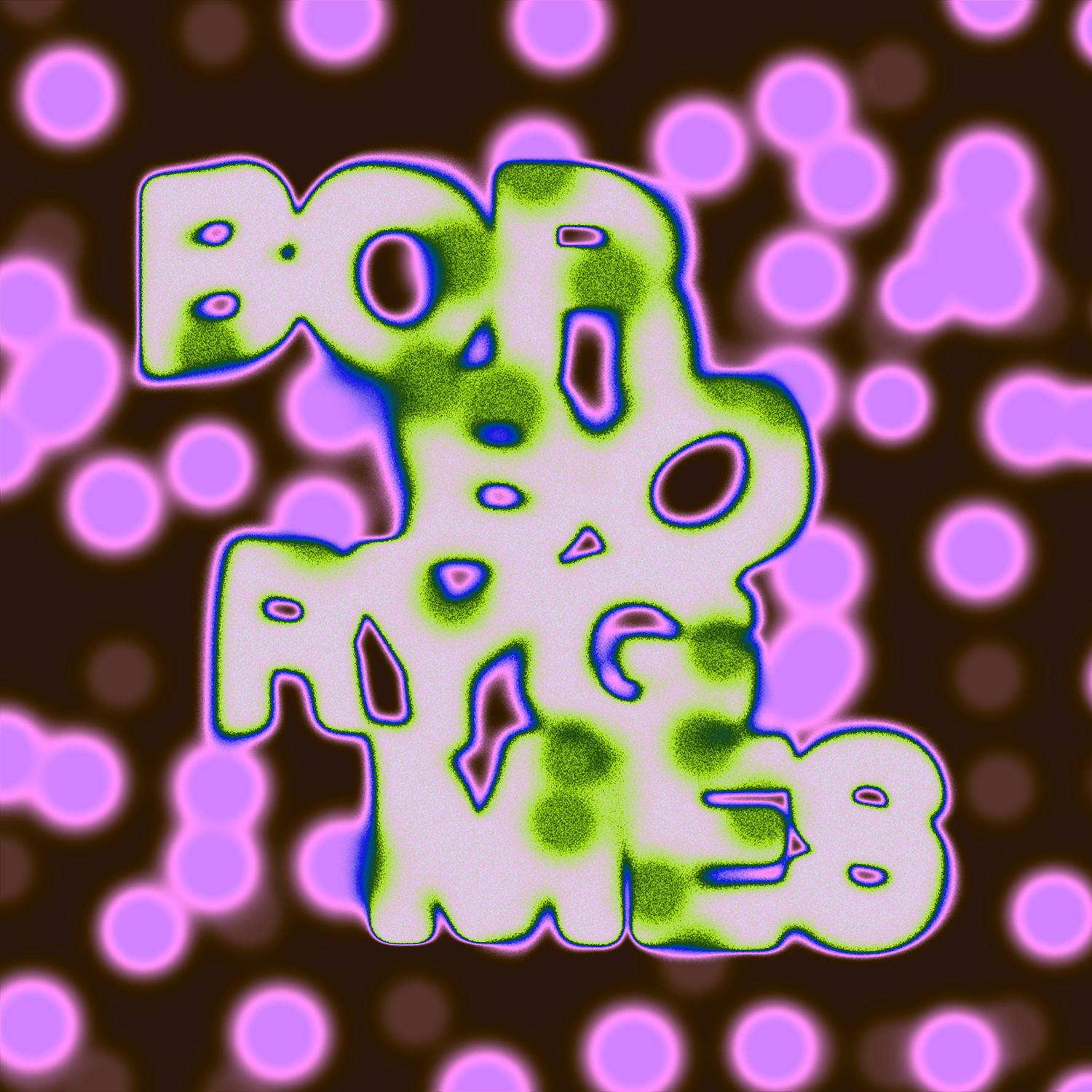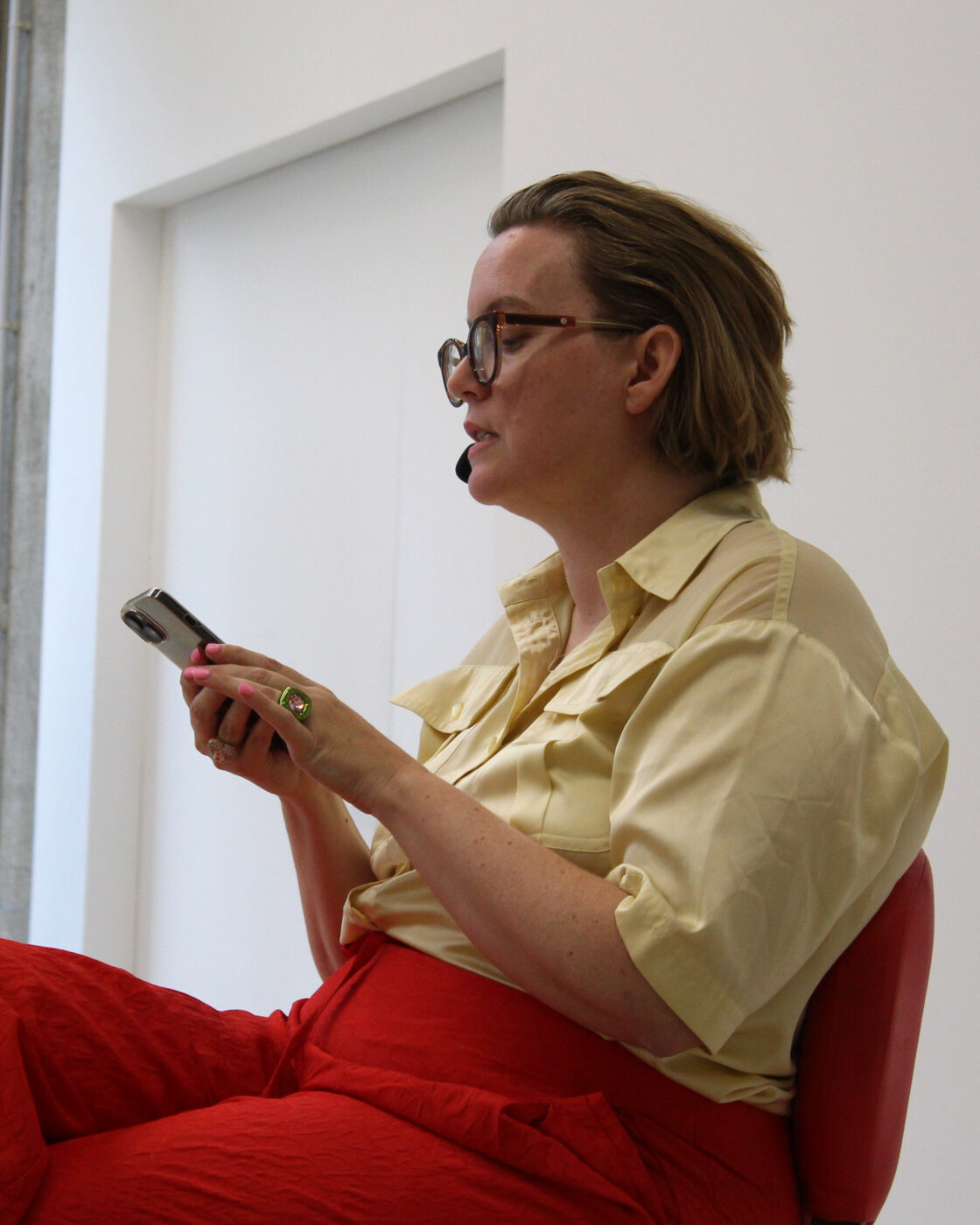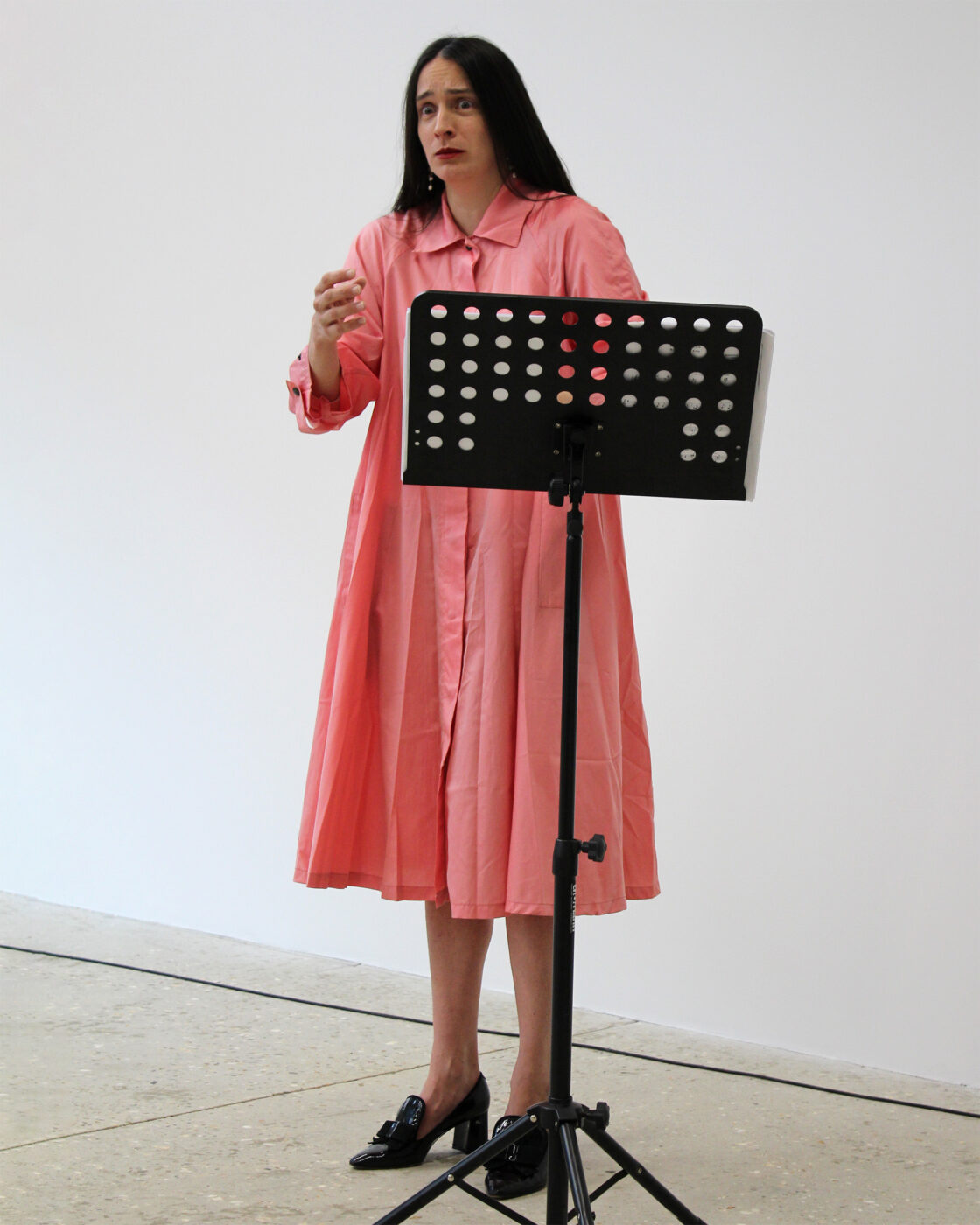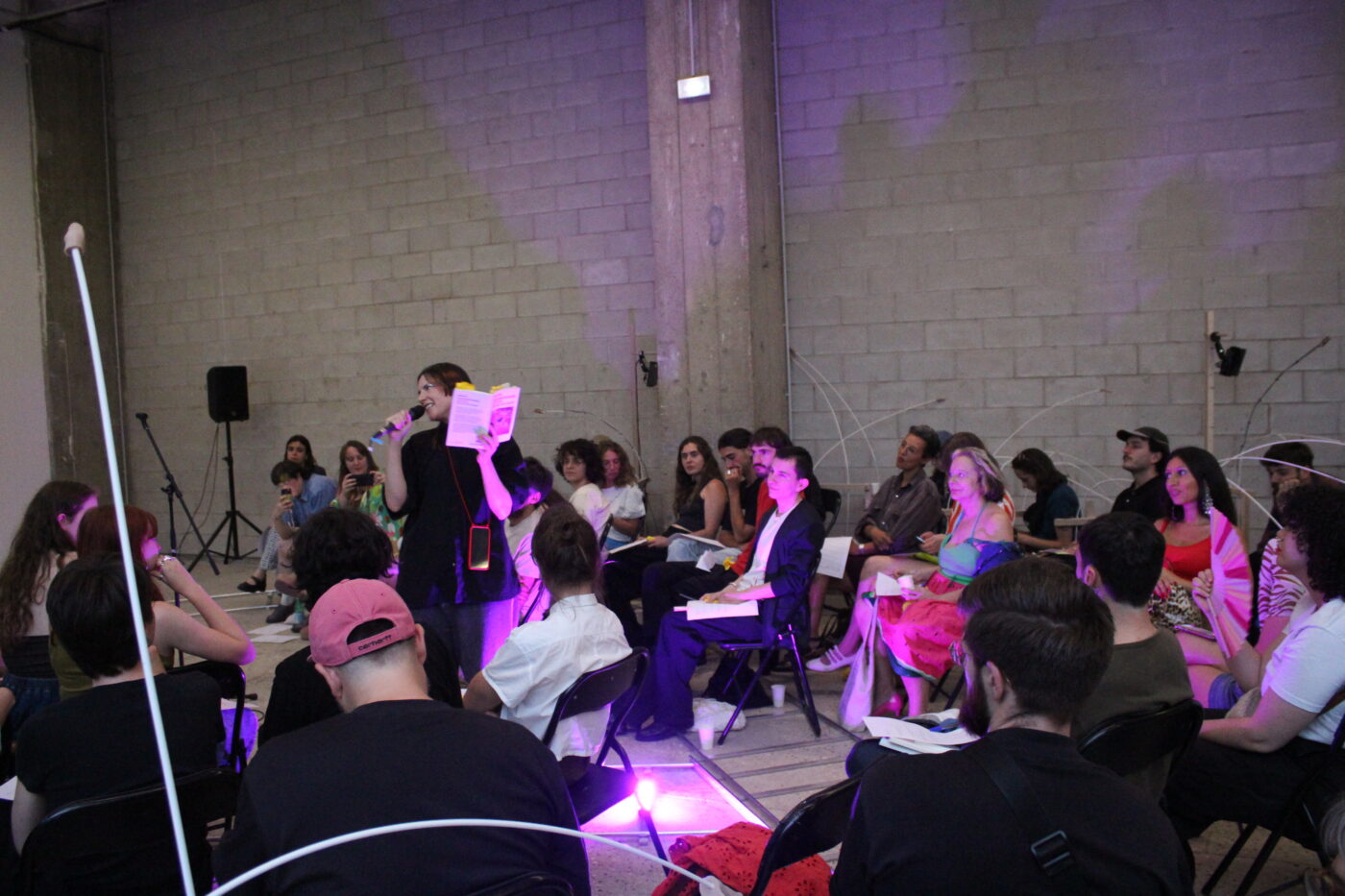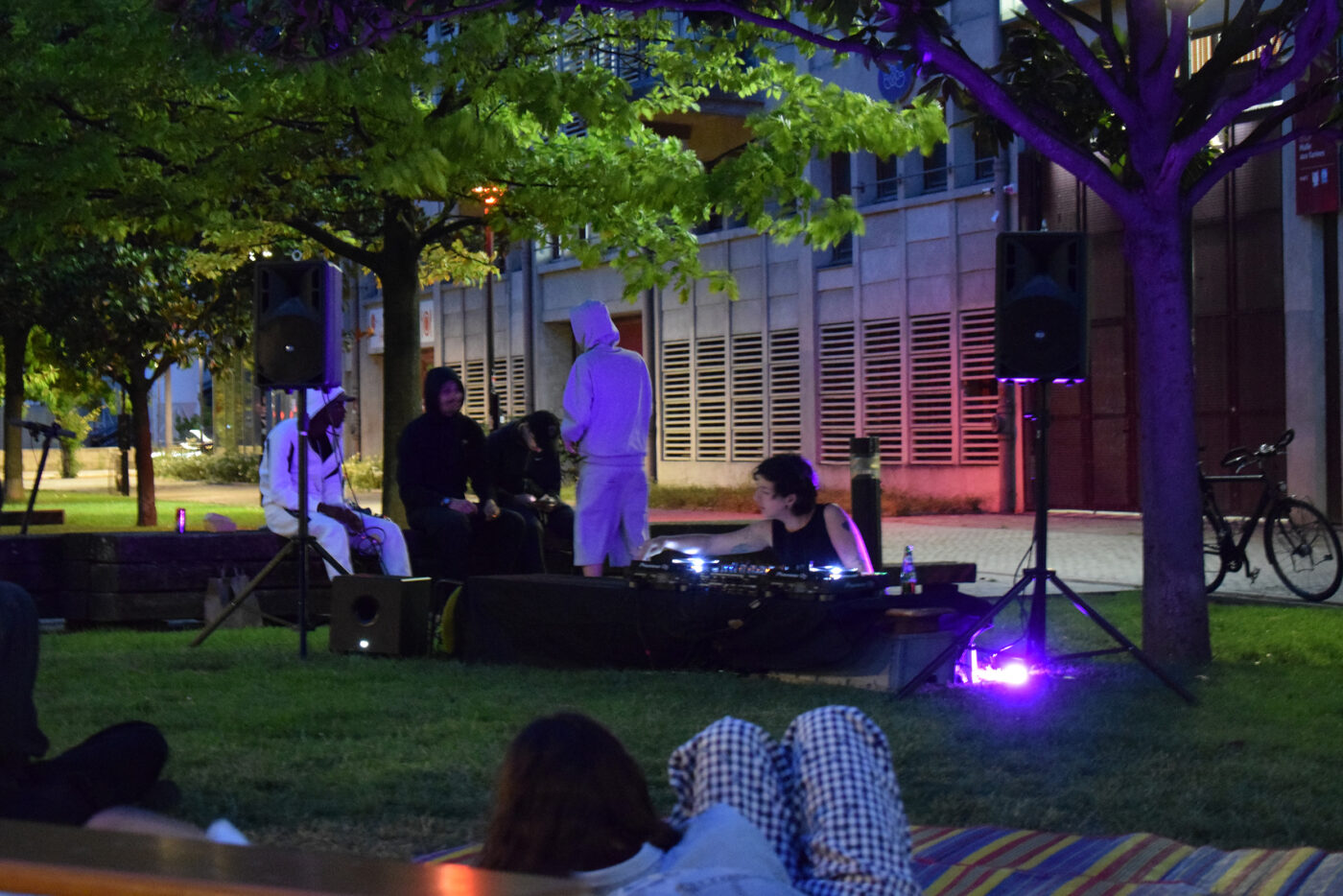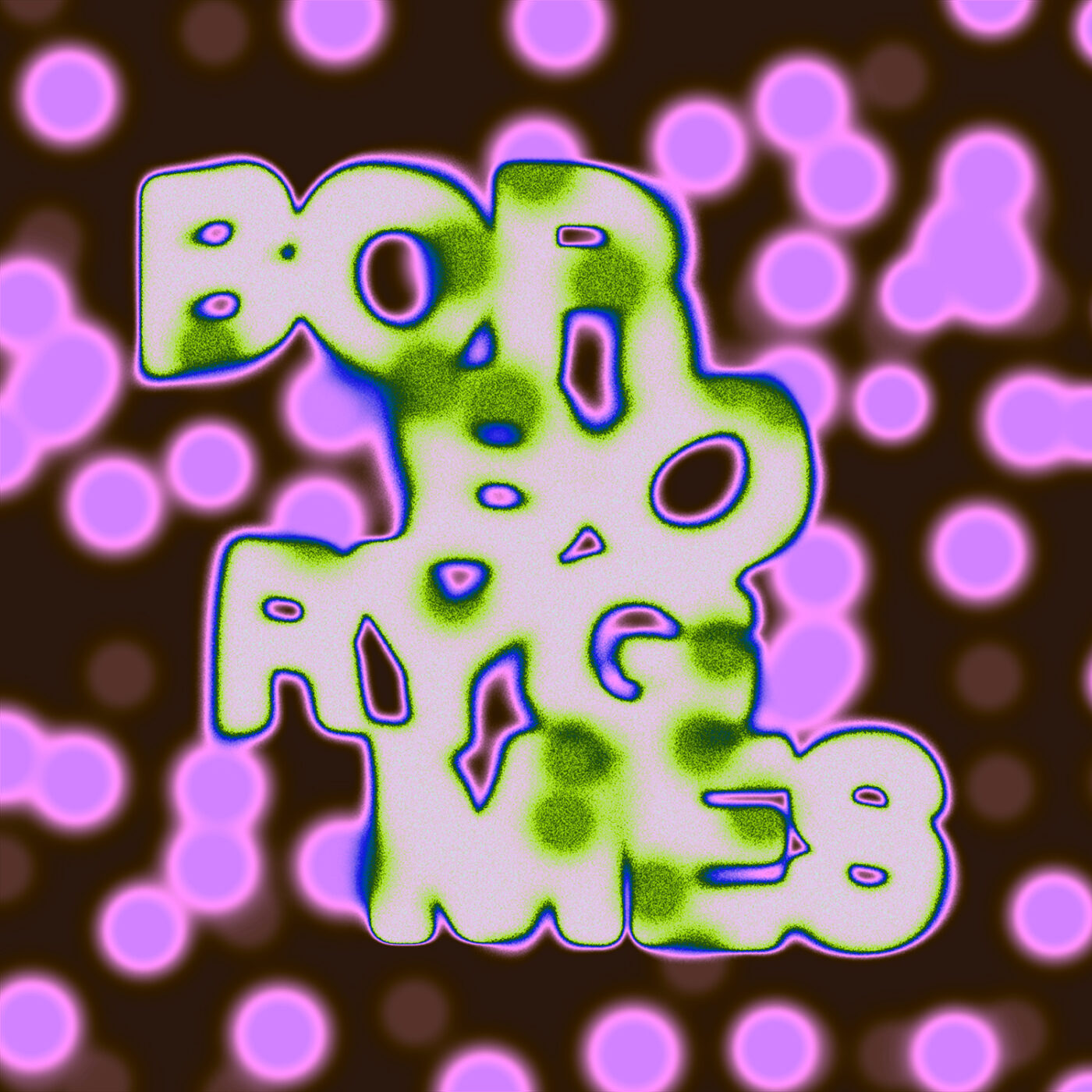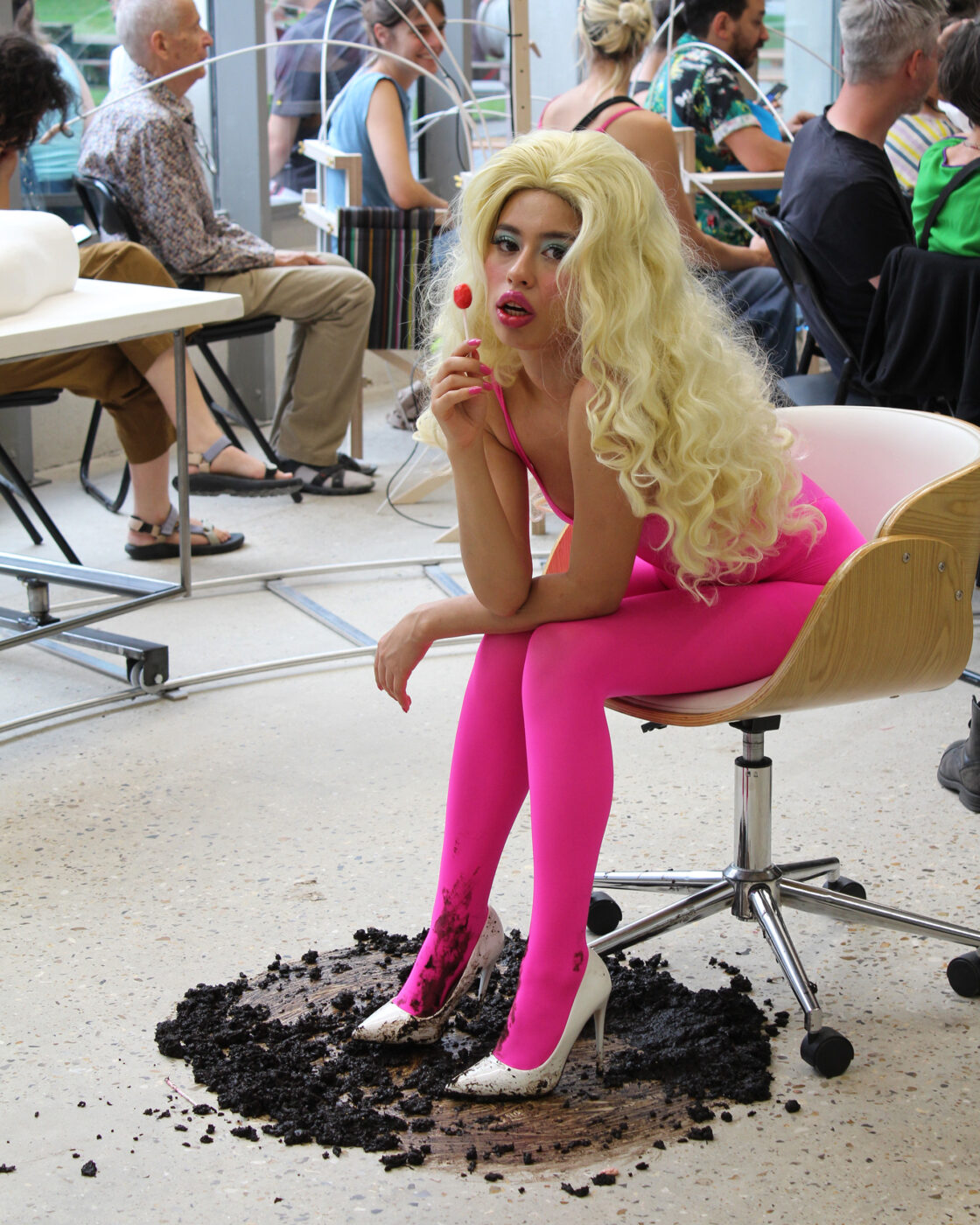
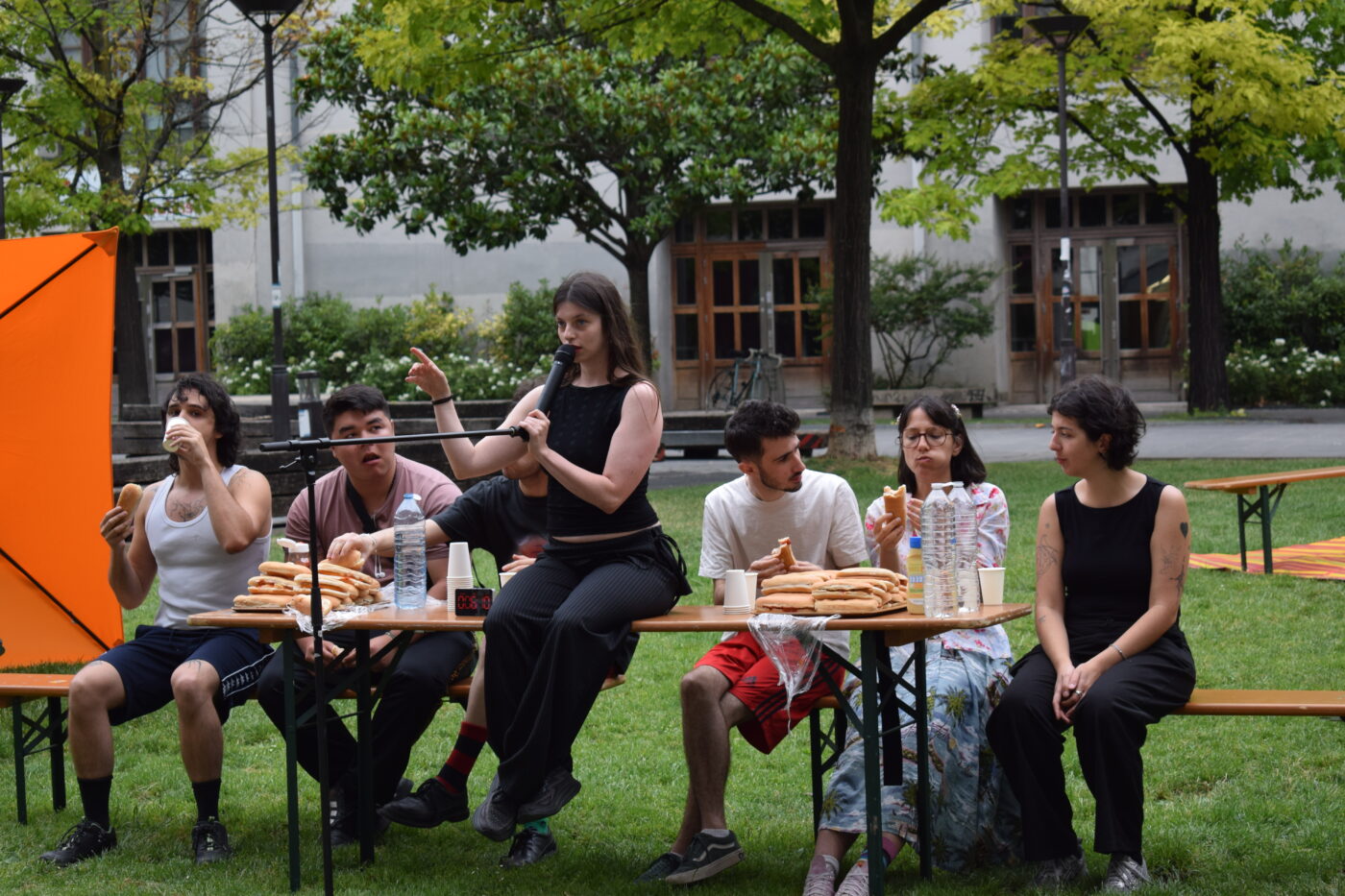
Borborygmi
With Sofia Batko, Estelle Benazet Heugenhauser, cl✰ra, Helena de Laurens, Star Finch, Hedwig Houben, Lisa Lecuivre & Nicole
An event part of the été culturel [Cultural Summer], a programme run by DRAC Île-de-France (Regional Committee for Cultural Affairs) - Ministry of Culture
As part of the exhibition “The Untamable Hand” by Hedwig Houben, the artists in this programme have been invited to present a series of performances, readings and artistic practice workshops from which to probe the ambiguous territories of embarrassment, disgust and the body’s unexpectedness. Exploring the forms and resistances of the body in the face of aesthetic and social norms, this programme aims to explore the critical and liberating power of letting go.
Programme:
• 4pm to 5pm
“From hysteria as symptom language to feminist poetics: arts, bodies, writing.”
Lecture by Sofia Batko.
• 5pm to 6pm
Discussion with Hedwig Houben, Émilie Renard and Vincent Enjalbert on the exhibition “The Untamable Hand”.
• 7pm to 10pm
“Borborygmi” evening
Readings, performances and DJ set
With Nicole*, Lisa Lecuivre, Estelle Benazet Heugenhauser, Helena de Laurens, Star Finch and cl✰ra.
We call “borborygmi” the sounds that, rising from our intestines, give voice to the liquids and gases of the food our bodies are trying—more or less laboriously—to process, transform and digest. We can agree, even though we’re not all equal when it comes to food, that a purée won’t sound quite the same as a raw bell pepper during digestion… Burrrp, beuuuurp, beuuuurglll are just some of the onomatopoeias that evoke the noisy churn of matter transmuting deep within the recesses of our guts. A machinery of flesh made up of acids and all sorts of fluids, these noises remind our minds—so quick to deny—that a functional body is one that produces plenty of miasmas and gurgles. The mystery of alchemy is long gone; the mechanics of a stool-to-be make themselves audibly known. The louder, longer, and more rolling the sound, the greater the embarrassment—and with it, the revulsion at the idea of letting others hear the workings of one’s inner self. Projecting its textured orality into the outside world, the body speaks and writes itself, offering up the rankness of its own language. Thus, much against our will, the sounds spill out and overflow, while brows furrow, nostrils flare, and upper lips curl in distaste.
In her performance Borborygmus¹, Hedwig Houben speaks of borborygmi as a manifestation of the IT within her: “IT, she explains, standing before a table strewn with clay-colored, intestine-like forms, is this multiple, undefined, and evolving thing. (…) It’s as if something managed to get inside (my) body. But how? And who? And what?”²
Beyond mere anecdote or aside, the borborygmus—or any other phonetic bodily discharge—evokes the language of a body that trembles, pulses, and undulates to the rhythm of its own “now”. A body momentarily become other, which runs wild and seems to do as it pleases. Something is made manifest that, in spite of us, inserts itself into our speech, derailing it—forcing a pause, a restart, or an awkward cough. Something needs to come out, literally or figuratively, provoking shame, self-disgust (or disgust at others), a loss of control, and a sense of estrangement from oneself. What do we do with this IT? Should it be tamed, silenced, allowed to do its thing, or given a space of its own?
Speaking of another kind of release—the barf—American poet Dodie Bellamy writes: “barf is messy, irregular, but you can feel in your guts that it’s going somewhere, you can’t stop it… you’ve just got to let it runs its course.”³ And what if what disturbs us most isn’t this encounter with an autonomous interiority, but the looks from others—marked by discomfort, disgust, and judgment. Already, morality rears its head, building its foundations on a physiological reaction presented as “natural.” As limit experiences positioned on the fringes of the thinkable or the acceptable, discomfort and disgust evoke a moral dimension that disciplines, corrects, and holds bodies in place. Perhaps we need to shift our focus—to let this unruly body do its thing, in order to interrogate discomfort and disgust as powerful analytical tools for understanding the hierarchies and discriminations that their social and political uses enable. How can “letting go” become an intellectual position, a methodology with its own aesthetic and political priorities? What does it mean to insist on disorder, improvisation, and release—for what this provokes in ourselves and in others—as a means of cultural critique and political engagement? While we assume them to be spontaneous and beyond language, aren’t these bodily manifestations and the discomfort they cause shaped by our social habits? It is precisely because they dwell in—or are relegated to—the murky margins of our social behaviors, that we need to collectively examine them, that we need words to tell their stories, images to capture them, gestures to reenact them. This program seeks to deconstruct and question the behavioral and aesthetic norms that shape our imaginations.
Elena Lespes Muñoz
¹ First produced in 2017, then reproduced for the exhibition “My Tongue Does This to Me” at the Galerie de Noisy-le-Sec in 2018, curated by Émilie Renard.
² Quoted by Marie Canet, in “Alter-it”, exhibition’s journal “My Tongue Does This to Me”, op. cit.
³ In Dodie Bellamy, Barf Manifesto (New York: Ugly Duckling Presse, 2010), p.30.
Sofia Batko
Sofia Batko (LEGS) holds a master’s degree in philosophy from Université PSL and a master’s degree in psychoanalysis from Université Paris Cité. She is currently completing a doctorate in gender studies and philosophy at Université Paris 8. Her thesis focuses on the reinvention of love in French feminism in the 1970s, particularly in the literature of Monique Wittig and Hélène Cixous, based on a reading of the teaching of J. Lacan. Her research lies at the intersection of philosophy and psychoanalysis, with a particular interest in issues relating to gender and sexuality. She is the author of the article Quelques pistes pour une relecture féministe de la figure de l’hystérique dans la psychanalyse [Some ideas for a feminist re-reading of the hysterical figure in psychoanalysis], published in the journal Psychologies, genre et société.
Estelle Benazet Heugenhauser
Estelle Benazet Heugenhauser (1985) is a franco-austrian writer, researcher and performer. Her creative output brings together textual theory and fiction as well as visual arts elements, and revolves around bodies which feel desire, hunger, and physical exertion, in order to undo established order structures and generate new disorders. Her texts have been published as monographs (Le Régime parfait, Rotolux Press, 2022 ; Bêcher son visage, 2020, éd. La Chambre verte) and also in magazines (TrouNoir, La Déferlante, Jef Klak, Sabir, A.O.C.). Furthermore she have authored public literary happenings (Point Ephémère, Les Subs, Centre Pompidou, Villa Médicis Académie de France à Rome, Franco-Irish Literary Festival) or conferences in art or academic context. Currently, she is a Doctoral Scholar at the Université Côte d’Azur and Dublin City University, finishing a PhD in Creative Writing, the working title of it being : « Écrire avec les affamées, manières de (se) nourrir dans la littérature contemporaine » [Writing with Hungry Women, Ways of Eating in Contemporary Literature].
She is also working on her next novel untitled Taurine. Every week, protagonist Christa, a sports and cultural guide in Salzburg (Austria), follows her routine. In the morning, she makes her group of tourists sweat through a series of gymnastic exercises. In the afternoon, she fills them in on national history during visits to heritage monuments. Between protein-packed appearances by Arnold Schwarzenegger and Empress Sissi on Red Bull, Christa recalls her training sessions in Rome on the main thoroughfares of the rationalist EUR district, the feeling of power due to the effects of her gastronationalist diet.
cl✰ra
cl✰ra is a DJ with fluid selections. She navigates between different styles and energies: from fast, percussive sets to slower, textured and introspective atmospheres. From trip hop to idm, via bass, dub techno and more experimental sounds, she seeks to create intense and sensitive listening moments.
Since 2024, she has been developing kiki radio, a platform dedicated to radio experimentation, based between France and Italy. kiki documents the work of underground musicians and DJs, offering a space for connection through sound. The aim is to explore the role of radio practices in contemporary contexts, both online and offline, while preserving its heritage as a tool for cultural and social communication.
Helena de Laurens
Helena de Laurens is an actress, dancer and choreographer. Her work explores the grotesque, metamorphosis and the ways in which the face is staged in theatre and dance. She studied Dramatic Art at the Conservatoire Erik Satie (Paris) and wrote a thesis on Valeska Gert as part of a Master’s degree in Cultural History of Dance at the EHESS, La grimace et l’inouï: danse et visage chez Valeska Gert. She performs in cabarets, museums, gardens and bookshops. She regularly collaborates with Esmé Planchon, Clara Pacotte and Sophie Bonnet-Pourpet. In 2018 she was a resident at the Cité Internationale des Arts in Paris. As a performer and choreographer, she plays in two solos written and directed by Marion Siéfert: Le grand sommeil (2018) and _jeanne_dark_ (2020), which received the Prix numérique (special mention for the show) 2020/2021 from the Syndicat Professionnel de la critique de théâtre, de musique et de danse. In June 2021 she created a performance based on Jean Cocteau’s La Voix humaine at the Centre Pompidou as part of the “Tableaux Vivants” event. In 2022 she will star alongside Emmanuelle Lafon and Frédéric Leidgens in L’Homosexuel ou la difficulté de s’exprimer by Copi, directed by Thibaud Croisy. In 2023 she plays in Cabaret Brouillon by Loïc Touzé. In 2024 she created a performance entitled Toujours pas prêt at the Théâtre de Gennevilliers as part of the Sur les bords 8 weekend of performances. In spring 2026 she will play Adela in La Maison de Bernarda Alba, directed by Thibaud Croisy.
Star Finch
Born in the United States and based in Paris, Star Finch writes and performs weird experimental pornography, at the intersection of theory and poetry. Their literary performances are regularly presented in art institutions in France and internationally (Palais de Tokyo Paris, ICA London, CAPC Bordeaux, Badischer Kunstverein Karlsruhe). Their ongoing research interests include vomit and dildos, exploring how these materials function as literary technologies. In 2024, They received a doctorate from l’Université Paris 8 in Gender Studies for their dissertation that traced the literary queerfeminsms of Kathy Acker, Hélène Cixous, Violette Leduc, and Audre Lorde. With the collective RER Q, they stage the performance of sexually explicit literary texts. Their poetry collection Crache dans ma bouche puis crache dans mon autre bouche [Spit in my mouth and then spit in my other mouth] was published in 2024 by Les petits matins. Their first novel, Fuck Me Judith, will be out very soon, with After 8 Books. Their other literary projects include Kathy Acker 1971-1975 (Éditions Ismael, 2019), and contributions to Lettres aux jeunes poétesses [Letters to young poets] (l’Arche, 2021) and Kathy Acker: Get Rid of Meaning (Verlag der Buchhandlung Walther und Franz König, Cologne, 2022). With sabrina soyer, they translated the poet Lisa Robertson into French, in Debbie: une épopée [Debbie: an epic story] (Joca Seria, 2021).
Hedwig Houben
Hedwig Houben (1983) is a Dutch artist who lives and works in Brussels. She creates filmed perfromances in which she explores the relationship between subjects and objects and the role the latter play in shaping our identity. Using malleable plasticine sculptures that she makes and unmakes, she engages in a dialogue with these constantly evolving creations or with herself in a controlled flow of words, thwarting the codes and expectations of conferences and official speeches.
Her work has been presented in numerous exhibitions and festivals such as: ‘SWEEP, TAP, SWOOOOOP’ at MHKA, Antwerp (2019), ‘You and I’ at Spike Island, Bristol (2016), ‘UnScene’, at Wiels, Brussels (2015), ‘Don’t You Know Who I Am? Art After Identity Politics’, MHKA, Antwerp (2014), “Six Possibilities for a Sculpture”, La Loge, Brussels (2013). With Émilie Renard, she has participated in four group shows: ‘Le corps fait grève’ at Bétonsalon (2021), ‘Tes mains dans mes chaussures’ (2016-2017, co-curator Vanessa Desclaux) and ‘La langue de ma bouche’ (in duo with Jean-Charles de Quillacq, 2018) at La Galerie, centre d’art contemporain, Noisy-le-Sec and ‘The Bridegroom Suites’ (co-cur. Hugues Decointet, with the Guy de Cointet Society) during Performance Day at the Centre d’art de la Ferme du Buisson, Noisiel (2019).
From 2015 to 2023, she was professor at the Art and Research Department of the St. Joost School of Art and Design in Breda (Netherlands), which she recently left, just as she left her gallery in 2020. Since 2019, she has joined forces with Rob Leijdekkers and Brenda Tempelaar to reflect on the conditions of artistic production based on collective experiences. Today, alongside her artistic practice, she restores furniture.
Lisa Lecuivre
Lisa Lecuivre explores areas of ambiguity, fragmented narratives, dissonant logics – and is fond of what escapes immediate reading. Drawing on anecdotes, news items and chance encounters, she sets up devices in which reality wavers, distorts and reinvents itself. The voice, often present in her work, becomes a vector for free associations, shifts in meaning and almost hallucinatory mental projections. She questions the need for meaning, while cultivating forms of aporia: when the accumulation of information prevents any clear position from being taken. Her work is less concerned with making clear-cut decisions than with revealing the complexity of the world, in all its tensions, contradictions and strangeness.
Nicole
Born in 1997 in Quito, Ecuador. Lives and works in Paris.
Nicole explores the stereotypes of exoticization and the domination of the gaze through video, performance, and installation. Her work plays with the codes of eroticism, fetishism, and personal branding on the internet, adopting a conceptual and subtle approach to reframe intimacy, spectacle, and power. Graduated of the Beaux-Arts de Paris (DNSAP, 2024). Her current work is on view at Marcelle Alix (Paris) in “El fantasma de Tennessee” (2025). She has also exhibited at FRAC Île-de-France, Bétonsalon, Exo Exo, and the Maia Biennial. In 2025, she was featured on the cover of Art Interrupted, Línea Recta.
An event part of the été culturel [Cultural Summer], a programme run by DRAC Île-de-France (Regional Committee for Cultural Affairs) – Ministry of Culture
* Nicole’s performance is the third occurrence in a cycle of performances entitled Are You at Your Feet by the artist Nicole, initiated as part of the exhibition “El fantasma de Tennessee” (cur. Ana Mendoza Aldana) at the Marcelle Alix Gallery (23.05.2025 – 26.07.2025).
Lecture by Sofia Batko, as part of the exhibition “The Untamable Hand” by Hedwig Houben and l’été culturel 2025.
Performances by Nicole, Lisa Lecuivre, Estelle Benazet Heugenhauser, Helena de Laurens, Star Finch & cl✰ra.
Writing Workshop with Star Finch, poet.
Limited places, registration required: publics@betonsalon.net
